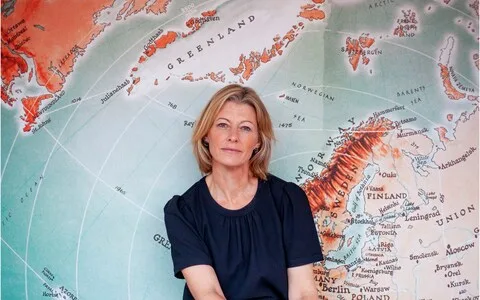More than 100 of Britain’s most distinguished families have signed up to a campaign to provide reparations for slavery, it can be revealed.
Heirs of Slavery was founded by Laura Trevalyan, the former BBC correspondent, who has pledged £100,000 of her own money to fund projects aimed at helping the descendants of slaves in Grenada, where her aristocratic forebears owned plantations.
The Telegraph can now reveal that more than 100 British families have signed up to Ms Trevalyan’s campaign, including serving politicians, City traders, and members of the landed gentry.
These heirs of powerful and storied families from Britain’s imperial history are soon set to convene in order to establish how they can practically atone for the actions of their slave-owning ancestors.
Speaking to The Telegraph in Grenada, Ms Trevelyan explained that this was the start of a growing “movement, saying: “Over 100 have come to us. Over 100 descendants of slave owners in the British Caribbean.
“Those are people who want to know how to support our work, how to research their ancestry, how to go about addressing this and going about repair.”
She added: “There is all of this momentum to towards repertory justice, whatever it means, in the wake of Black Lives Matter It’s a question of how to channel all this moment and all this energy.”
Ms Trevelyan flew to Grenada to see how her pledge for £100,000 might be spent
Credit: Ander McIntyre
The Heirs of Slavery group aims to follow the lead of Caricom (Caribbean Community), a political and economic union of 15 member states in the region, which has pushed for reparations and devised a 10-point plan for how they should be made by European powers. Their plan includes increasing education on slavery, formal apologies, and cash for development.
A total of 125 families whose ancestors owned slaves have contacted the group. The vast majority are based in Britain, but a small number live in the US, Australia and New Zealand.
Alongside the co-founders of the group, which include David Lascelles, the Earl of Harewood, and Charlie Gladstone, a descendant of Britain’s four-time prime minister, Heirs of Slavery has been contacted by former Tory MP Antoinette Sandbach, whose ancestors built vast estates with slave wealth.
The group has also been approached by Nick Hibbert Steele, a descendant of slave owner George Hibbert, whose vast wealth helped found the West India Docks and the RNLI.
Other establishment figures in politics, academia and the City who have signed up have not yet gone public.
It is understand that a large percentage of the families now attached to the Heirs of Slavery have links to slave plantations in Jamaica, Barbados, and Guyana.
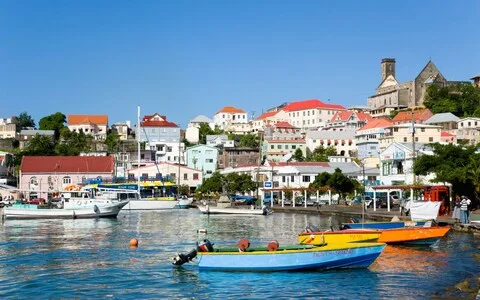

Grenada is a former British colony
Credit: Eye Ubiquitous/Universal Images Group Editorial
Ms Trevelyan, who has been in Grenada to observe how her own financial pledge might be spent, said it is “It’s no coincidence that wealthy families today are descended from those who gained their wealth through slavery.”
She added that large families might need time to “get their ducks in a row” and decide what they want to do collectively. An inaugural conference of Heirs of Slavery is set to take place in London in November to help to decide what the families will do.
This will be done with the help of Reparations Commissions from individual Caribbean states, who will be asked to offer guidance on what form reparations could take, and where they will have the most benefit. Funding for development has been a key demand from chairs of these commissions.
The Gladstone family recently made a formal apology in Guyana, and it can be revealed that the Trevelyans have approached the Charity Commission to establish the Trevelyan Grenada Reparations Fund so future generations of the family can continue to offer reparatory justice, a path other families could follow.
It is understood that other heirs are only just beginning to look into their ancestral links, including Ms Sandbach, who has called for records of her family history to be digitised. One strand of the Heirs of Slavery group’s work will be seeking to make personal family records public to help people in the Caribbean better understand their history.
Britain had extensive colonial possessions in the Caribbean, alongside the French and Dutch. The 15 Caricom member nations have demanded reparations from European countries to address the wealth that was extracted from their countries through slavery, and underdevelopment prior to independence, with a 10-point plan on how to do this issued in 2014.
Families with a slaver history
The Hibbert family
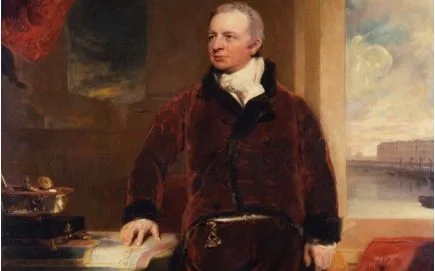

George Hibbert was an MP who actively lobbied against the abolition of the slave trade
Credit: TELEMMGLPICT000348488854_16942030882390.jpegSourceMUSEUM OF LONDON
They originally operated a draping business but went on to be one of many to invest in sugar plantations in the Caribbean.
Slave-owner Thomas Hibbert moved to Jamaica in the 17th century to oversee his holdings. He became involved in local politics, and built Hibbert House In Kingston, which stands to this day.
His brother Robert co-founded a shipping company called Hibbert, Purrier and Horton which had extensive involvement in the family’s slave-driven business interests.
His son George (1757-1837) became head of this venture and would go on to be a prominent figure in British commerce, eventually becoming the first chairman of the West India Dock Company which transformed London shipping with the building of the West India Dock.
George Hibbert, an MP, actively lobbied against abolitionist William Wilberforce and supported the institution of slavery being maintained. HE was known to use his wealth to make donations to those affected by maritime disasters, and he played a part in founding the RNLI in 1824, a fact recognised on the website of the charity which states: “Hibbert was a prominent MP, merchant and slave owner.”
In modern times, his descent Nick Hibbert Steele, a resident of Australia, has sought to work through Robert Hibbert’s Jamaica diaries to get a better understand of the family’s links to the slave trade.
The Sandbach family
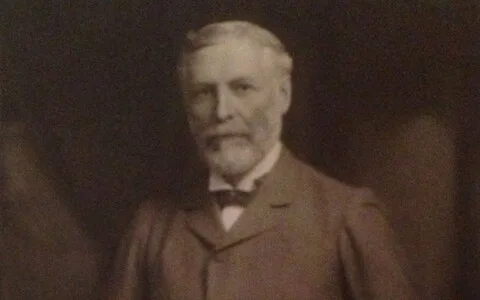

Samuel Sandbach held a number of offices including becoming mayor of Liverpool
Samuel Sandbach (1769-1851) was the son of an innkeeper but quickly rose in society after moving to join a family venture in Grenada.
The family firm had investments in the Demerara sugar plantations in Guyana, and Samuel Sandbach’s aptitude for business led him to go on to co-found McInroy, Sandbach & Co, a booming business in the sugar trade.
He also had interests in another large business which exploited slave labour, Sandbach, Tinne and Co.
Samuel Sandbach’s wealth gave him a significant standing in society, and he became Mayor of Liverpool, as well as High Sheriff of Denbighshire and a Justice of the Peace for Lancashire.
He owned around 500 slaves at the time of abolition in 1833, for which the family received compensation. His descendants went on to establish vast estates in Wales.
Samuel’s descendant Antoinette Sandbach was the Tory MP for Eddibsury between 2015 and 2019. She has shown an interest in learning more about her family connections.
The Gladstone family
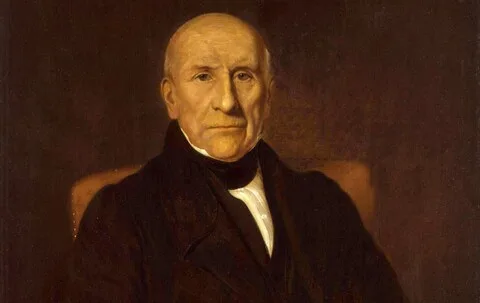

John Gladstone received the equivalent of £10m in compensation for losing his slaves
Credit: Alamy
John Gladstone was a Scottish merchant and slave owner who in 1833 became the recipient of the biggest compensation pay-out for the loss of slave “property”, receiving the equivalent of £10 million.
His son William Ewart Gladstone, aided in his political ambitions by the family wealth, had lobbied in Parliament for compensation to be made to slave owners early in a career in which he would go on to become prime minister four times. He would later say that the slave trade was evil.
In modern times, the family still retains land holdings, but has sought to address its links to slavery. Charlie Gladstone, a co-founder of the Heir of Slavery group, recently travelled to Guyana to make a formal apology to the nation for the activities of his ancestors.
The Lascelles family
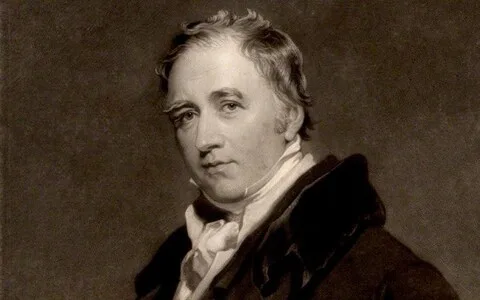

Henry Lascelles received compensation for 1,277 slaves
Credit: National Portrait Gallery
In 1812, the new title of Earl of Harewood was created for the wealthy sugar plantation owner Edward Lascelles, who had inherited a fortune made in the West Indies. He was estimated to be among the wealthiest men in Britain.
His son Henry Lascelles, 2nd Earl of Harewood, a Tory politician, received compensation for the 1,277 slaves he owned.
The storied family boasts ambassadors, secretaries to royalty, and in more recent times a director of the Royal Opera House.
In the modern day, TV producer David Lascelles, 8th Earl of Harewood and a second cousin of King Charles, has acknowledged that his country seat of Harewood House in Yorkshire was built with the wealth generated from slavery.


